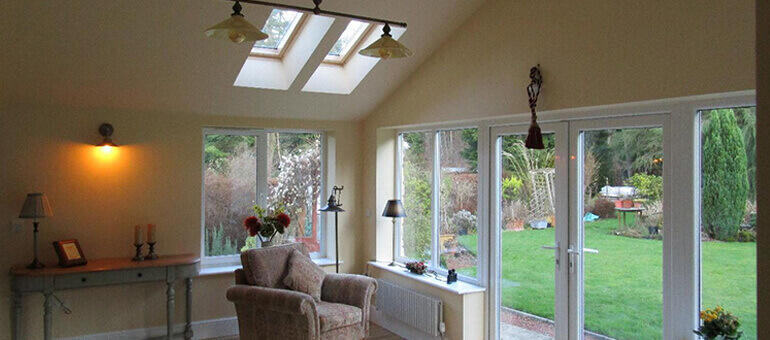Other than buying your home or a new car, building work can be one of the most expensive things you will ever purchase and you may be paying for it for many years to come. So if you’re considering hiring a builder to carry out building work in your home or business then it pays to take a little time to do your research beforehand to ensure that you not only get the best possible service and value for your money, but also get the best out of your relationship with your builder.
Before you contact any Builder or Building Contractor –
1. Think about what it is you really want to achieve with your building work?
Is it just something small like a lounge ceiling that needs plastering or is it something on a much larger scale like an extension or possibly a new build? Obviously these are on completely different ends of the spectrum, and the more in-depth the building work the more in-depth the selection process should be.
2. Don’t rush into having building work done.
You should never rush into any sort of building work without doing your research and one of the best sources of information available is the internet. Since the revolution of the internet it has never been easier to check out building regulations, advice forums, builders in your area, or any type of company or idea that you may have. In my opinion any builder who is serious about their business will have a presence on the internet.
3. Get your ideas down on paper
This is a very important part, if you can go through every aspect of your idea and write notes about each section this will help you greatly in two ways; firstly it will help you envisage what you want done, and secondly you will achieve a far more accurate quotation. By writing it down or doing a sketch you will be able to give each builder who is quoting for the job the same notes/sketches, so there is no misunderstanding. Without this it is very easy for three builders to come out and each one will interpret a verbal explanation differently, plus you also run the risk of missing out certain details that may be very important and costly.
4. Make sure any quote you get is like-for-like.
All quotations for building work need to be on a like for like basis when tendering or you will simply never get a true reflection of where the price stands from builder to builder.
If the building project you are about to embark on is an extension, new build, or a more involved renovation then this will generally need a consultation with a designer and the involvement of building control.
5. Ask for recommendations from family & friends
Now that you have a clear idea of the work you’d like the builder to carry out, ask a family member, friend, work colleague, or a neighbour who you know has had similar building work undertaken. This is obviously a good starting point, speak to them ask them for any advice and see if they are happy to recommend the builder they have used. If this is not an option for you then this is where the internet rules.
Selecting a building contractor
1. Do your research!
I would advise that when selecting your building contractors you always use those who are traceable, and whose businesses looks professional If they have just got a mobile contact number and if there is no address available, then that to me is a bad sign (why would you want to withhold these details?). If there are problems they can just walk away and you will find it hard to trace them.
The reality is that any company that turns over £77,000.00 (that is just turnover not profits) in any 12 month period will have to be by law registered for VAT. This is something to consider when choosing a builder, if the job is small then perhaps a non VAT registered tradesman is the cheaper option. But if you are planning to do more involving work i.e. extensions, renovations, new builds etc. it will be very hard to find a creditable building company who is not VAT registered! How many extensions or larger projects can you do in a year that does not take you over the threshold? You have to ask yourself is the company big and experienced enough to do the work?
2. Always get three quotations for your building work
This is a must as you need to get a feel for the different building companies and prices available to you. Once you have selected your preferred builders ask them to come out and meet you, this is where you can really get a feel for somebody. It is critical that you can get on with your builder as you need to have a good working relationship. But just as importantly they must fill you with confidence of their abilities and knowledge. However be aware that some unscrupulous builders can be very convincing you only have to watch cowboy builders on channel 5 to realise this!
3. Remember – Quality versus price!
Just a few things to consider here, and a few questions that you need to ask yourself. Why is one quotation for building work far cheaper than anyone else? Why is another quotation for building work really expensive? Some prices may be miles apart which can be quite worrying. Is the cheapest builder just going to do a shoddy job or cut loads of corners? And is the most expensive builder just trying to rip you off? Only you can decide this and only you know where you want to be on this scale, but somewhere in the middle is always a good place to start.
Once you have chosen the building contractor you would like to use:
1. Always ask for references
This is so important! If your builder cannot supply them then you have to ask yourself why? The reference should be in the format of a contact name, number, and address. You may find that the referee is happy to talk to you on the telephone but not so keen to show you around, this is understandable as some people may feel that is too intrusive. But you may still be able to drive past the address to see the work from the outside.
2. Get a Contract
It depends on the job size but anything remotely big you should request a contract. This will let both parties know where they stand. The building contract should state price, start/finish dates, amenities available to contractor, stage payments, what to do in disputes, contractor insurance, health and safety, and other various relevant details. Another important thing to do is to inform your house insurance company of the building work that’s going to take place.
3. Payments – Don’t pay upfront!
The golden rule is not to pay money in advance for any building work! There are a few exceptions to this; for example, if there are bespoke items involved which need to be fabricated, however you could pay for these items directly yourself rather than giving the builder the money. As for paying for services this is a definite no, as most established builders have credit accounts with their main suppliers so there is absolutely no need for money up front before the building work commences.
4. Try and assess the building work as it progresses
Are you happy? Do you feel you have value for money? If building control is involved are they happy? Is your contractor always on site? You need to have a balance between what building works have been completed against what money has been paid. Neither should be to extreme either way it needs to be fair for all parties involved.

